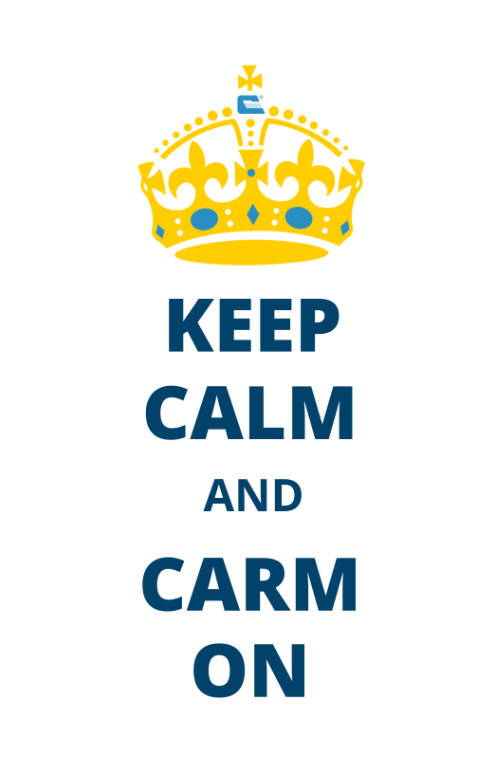- Workplace Type: On-site
CARM
CBSA Assessment and Revenue Management
Step 4: Financial Security (Bonds & Cash)
Step 1
Discover CARM
Discover how to navigate CARM, optimize your processes, and stay ahead in the ever-evolving world of Canadian customs management.
Step 2
CCP Registration
The CCP is now live and participation in CARM is scheduled to become mandatory for Canadian importers. Let’s help you get started with registration.
Learn MoreStep 3
Delegation Process
With CARM, tasks and functions traditionally provided by your customs broker are required to be completed by you, as the importer.
Learn MoreStep 4
Financial Security
Importers without financial security and not enrolled in RPP cannot defer payments.
Learn MoreStep 5
CBSA Account & Payments
Ideally, by now you have registered your business in the CCP and taken care of setting up the basics. Now let’s learn more about your CBSA Import Account.
-
Step 1
Discover CARM
Discover how to navigate CARM, optimize your processes, and stay ahead in the ever-evolving world of Canadian customs management.
-
Step 2
CCP Registration
The CCP is now live and participation in CARM is scheduled to become mandatory for Canadian importers. Let’s help you get started with registration.
Learn More -
Step 3
Delegation Process
With CARM, tasks and functions traditionally provided by your customs broker are required to be completed by you, as the importer.
Learn More -
Step 4
Financial Security
Importers without financial security and not enrolled in RPP cannot defer payments.
Learn More -
Step 5
CBSA Account & Payments
Ideally, by now you have registered your business in the CCP and taken care of setting up the basics. Now let’s learn more about your CBSA Import Account.
NEXT STEP
You are here!
A major change
That's right! The CBSA's financial security rules have changed. As a result, the importer will be required to post their own financial security with the CBSA in order to maintain the same Release Prior to Payment (RPP) privilege it had through their broker’s bond.
The RPP program entitles importers who have posted financial security with the CBSA to:
- obtain the release of goods from the CBSA before paying duties and taxes;
- defer accounting for goods;
- defer payment of duties and taxes.
Therefore, importers without financial security and not enrolled in RPP cannot defer payments and will be required to pay duties and taxes to the CBSA at the time of import for the release of their goods.
The CBSA has granted importers a transition period from the CARM go-live date to assist in the program transition and security processes. Importers must ensure their security is in place before the end of the 180 days, on April 19, 2025
How do I post security for CARM?
You’ve got two (2) options: an annual surety bond or a cash deposit.
Surety Bond: Calculated on 50% of your highest monthly account payable to the CBSA within the prescribed 12-month period. The minimum bond amount for CARM R3 is $5,000 per import program (RM).
Cash Deposit: Requires 100% of your highest monthly account payable to the CBSA within the prescribed 12-month period.
ProTip: The CCP indicates a minimum security amount for your account. However, it is possible the amount is not accurate. To determine your highest monthly accounts payable, refer to the total duties and taxes payable per your Statement of Accouns for the last 12 months. Importers who don’t have a 12-month history of account balances can make an estimate.
Although you are required to renew your bond annually, the CBSA reserves the right to request an increase to your bond at any time and will be monitoring bond utilization in real-time in the CCP.

Frequently Asked Questions:
What if importers do not have their own security after the 180 day transition period ends??
Importers who have not posted security under the RPP Program will be required to pay the CBSA to release their goods. In addition to delays, impacts could include added service, warehouse, or transportation costs.
Surety bond amount
The minimum bond level required to be allocated to each BN15 will be $5,000 and the maximum bond will be $10 million. Note: This does not mean you’ll pay $5,000 to obtain a bond.
A bond fee is much lower—a fraction of the bond amount. Bond fees may change based on competition and demand. Make sure to ask your surety company what the bond fee is.
In CARM, a minimum bond amount must be allocated to each BN15 (RM Import Program).
For any importers exceeding the minimum bond threshold, the CBSA has proposed a bond equal to 50% of the highest monthly duties, taxes, and fees (including GST) for a single month, from their past 12-month history.
For example: if the highest monthly payable to the CBSA is $200,000, the bond amount will be $100,000. If the highest monthly payable is $80,000, then the importer will need a $40,000 bond.
Customs brokers and customs-authorized couriers will still do customs release in the same manner as it is done today. However, importers must have their own financial security in place to participate in RPP.
How to secure a surety bond (customs bond)?
Within the CARM project, you can no longer rely on your customs broker’s financial security for RPP privileges. However, you can get your bond through your customs broker or an approved surety-bond provider.
If you deal directly with a surety company, be sure they are well experienced in Canada Customs bonds and are up-to-date with current and future CARM requirements.
We can help you get your bond!
Request a bond, and one of our CARM representatives will contact you directly.

Frequently Asked Questions:
Why should we get a surety bond now?
Over 200,000 commercial importers require security set in place to avoid future hold of goods for payment on entry. High demand and new CARM programming create a layer of complication on this new requirement. This will impact how quickly surety companies and the CBSA can process bond applications. Ensure your security is set as soon as possible and the CCP has the right information.
I use several customs brokers to clear my goods. Do I need a separate bond for each one of them?
Can I use my U.S. customs bond for Canadian RPP?
Is this bond premium a one-time cost?
Keep calm and CARM on!
Now that we have completed Step 4: Financial Security, it's time to look closer at your CBSA import account, so you can review your payment processes.
